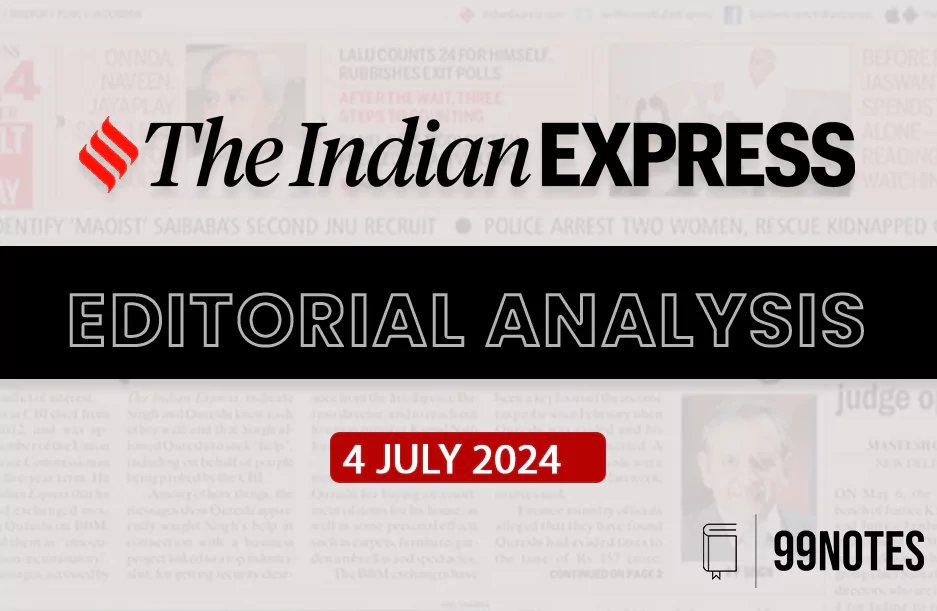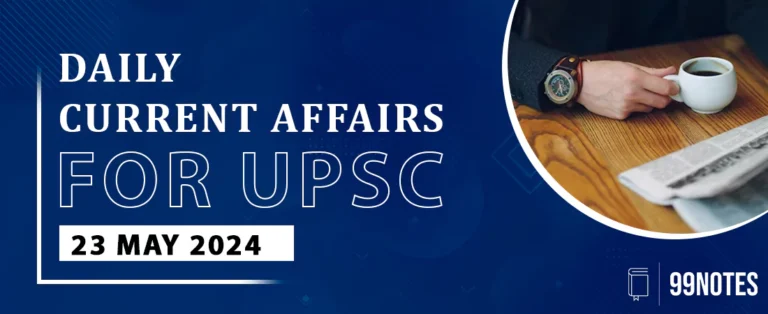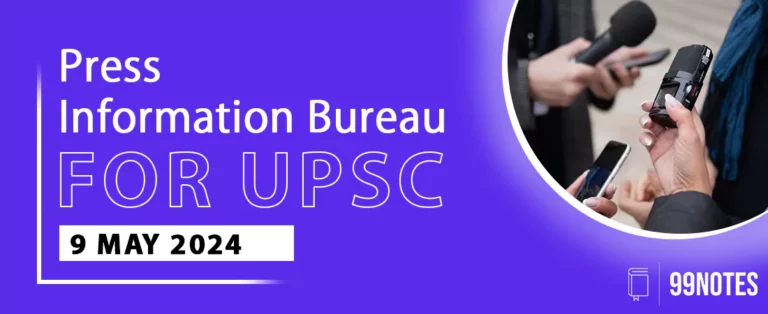4 July 2024 : Indian Express Editorial Analysis
1. ANSWER IS A QUESTION BANK
(Source: Indian Express; Section: The Editorial Page; Page: 10)
| Topic: GS2– Social Justice – Education |
| Context: |
|
Vision of NEP 2020
- The National Education Policy (NEP) 2020 aims to fundamentally transform the nature of learning assessments. It advocates for a shift from summative assessments, which primarily test rote memorization, to more regular and formative evaluations.
- These assessments focus on competency-based learning and test higher-order skills such as analysis, critical thinking, and conceptual clarity.
- This approach aligns with the broader agenda of the Ministry of Education, emphasizing the need for continuous improvement and modernization in the educational assessment landscape.
Challenges Identified by the Parliamentary Standing Committee
- The Parliamentary Standing Committee on Education, Women, Children, Youth, and Sports, in its 336th report in 2021, highlighted several persistent challenges in the conduct of public examinations.
- These include issues like question paper leaks, administration of incorrect question papers, confusion regarding seating arrangements, rampant cases of copying, and the appointment of inappropriate examiners.
- The committee recommended that the examination management competency of institutions should be a mandatory criterion for accreditation.
- This recommendation underscores the need for a robust and reliable examination system to maintain the credibility of educational assessments.
The Question Bank System
- The Question Bank system offers a promising solution to many of the identified issues.
- By providing a category-wise pool of questions to students at the beginning of the academic year, the element of secrecy is removed. This transparency reduces the risk of question paper leaks and other malpractices.
- The system ensures that students are prepared holistically, rather than focusing on specific questions. Additionally, it promotes comprehensive coverage of the syllabus by teachers, as the potential for selective teaching is eliminated.
- The introduction of the Question Bank system can significantly enhance the fairness and integrity of public examinations.
Need for Independent Educational Leadership
- The issue of inadequate human resources for leadership positions in educational institutions is a significant concern.
- There is a pressing need to develop an independent cadre, such as an Indian Education Service, to ensure quality control and effective institution-building.
- Introducing specialized courses in school management, college management, and university management can prepare individuals for leadership roles in the education sector.
- This approach will help in creating a pool of qualified professionals who can contribute to the improvement and modernization of educational institutions.
Ensuring Trust and Transparency
- The trust in the evaluation system and the guarantee of transparency, fairness, and justice are crucial for any educational assessment system.
- The introduction of Question Banks, the evolution of alternative evaluation systems, and the development of institutional leadership will ensure that this trust remains intact.
- These measures will contribute to creating a reliable and effective examination system that meets the highest standards of integrity and fairness, thereby fostering a culture of trust and transparency in the educational ecosystem.
| What Steps Can Be Taken to Address the Challenges in the Examination System? |
|
Focus on Understanding and Analytical Ability:
Subject and Skill-Specific Assessments:
Prevent Cheating:
Examinations as a Means, Not an End:
Leverage Technology for Credibility:
|
| PYQ: National Education Policy 2020 is in conformity with the Sustainable Development Goal-4 (2030). It intends to restructure and reorient education system in India. Critically examine the statement. (250 words/15m) (UPSC CSE (M) GS-2 2020) |
| Practice Question: Evaluate the potential impact of the Question Bank system on the integrity and fairness of public examinations in India. Additionally, analyze the need for developing an independent cadre for educational leadership and its potential benefits for the Indian education system. (250 words/15 m) |
2. Nine internal security challenges
(Source: Indian Express; Section: The Ideas Page; Page: 11)
| Topic: GS3– Internal Security |
| Context: |
|
Need for a National Security Doctrine:
- A comprehensive national security doctrine (NSD) is essential for India. Although the National Security Advisory Board has drafted several versions, none have been approved.
- Major powers utilize an NSD to outline internal and external challenges and the corresponding policies.
- If an overall NSD is challenging to finalize, at least an internal security component should be developed to avoid the ad hoc management of internal security challenges, especially during government transitions.
Internal Security Ministry Reform
- The Ministry of Home Affairs (MHA) is currently overburdened, leading to delays in addressing internal security matters.
- To enhance efficiency, a young junior minister within the MHA should be given independent charge of internal security.
- The positive impact of such an arrangement was evident during Rajesh Pilot’s tenure, demonstrating the potential benefits of focused leadership.
Addressing Issues in Jammu and Kashmir
- Despite claims of reduced terror incidents since the abrogation of Article 370, Jammu and Kashmir remain far from normal.
- Recent terror attacks in the Jammu region highlight the ongoing threat.
- The government must reorganize the security grid, restore statehood to J&K, and hold elections for the Assembly to stabilize the region and counter the Pakistani deep state’s objectives.
Challenges in the Northeast
- Prime Minister’s characterization of the Northeast as “a piece of our heart” underscores its importance, yet the region faces significant challenges.
- The Framework Agreement with rebel Nagas remains unfulfilled due to demands for a separate flag and constitution.
- Meanwhile, issues of extortion, recruitment by rebels, ethnic conflicts in Manipur, illegal migration, drug trafficking, and arms smuggling necessitate a comprehensive approach.
- The PM may need to personally intervene to address these complex issues.
The Naxal Problem
- The Naxal problem has seen a decline in violence and influence due to the implementation of the national policy and action plan.
- However, with Naxals currently on the back foot, the government should offer a healing touch by declaring a unilateral ceasefire, inviting them to negotiate, addressing their genuine grievances, and integrating them into the mainstream.
Restructuring Intelligence Bureau and CBI
- Both the Intelligence Bureau (IB) and the Central Bureau of Investigation (CBI) require restructuring.
- The IB, established in 1887, needs a statutory basis to prevent misuse.
- Similarly, the CBI, deriving its powers from a 1946 act, needs to be strengthened legally, infrastructurally, and resource-wise, as recommended by the parliamentary committee.
Reforming State Police
- Transforming the state police from a “Ruler’s Police” to a “People’s Police” is crucial.
- This shift will require comprehensive reforms to align with the democratic ethos and ensure the police serve the public effectively, much like Robert Peel’s reforms in Britain.
Addressing Issues in Central Armed Police Forces
- The Central Armed Police Forces (CAPFs) face problems like unplanned expansion, haphazard deployment, inadequate training, and internal friction.
- A high-powered commission should be appointed to address these issues and provide long-term solutions.
Integrating Technology in Policing
- Technological advancements can significantly enhance policing efficiency. A high-powered technology mission, as suggested by the PM, should be established to recommend and implement the latest technologies to tackle emerging challenges in policing.
Conclusion: Strengthening Internal Security
- India’s internal security is crucial for its international standing and internal cohesion.
- Addressing the outlined issues with foresight and imagination will help eliminate breeding grounds for terrorists and extremists, thereby strengthening the country’s overall security framework.
| PYQ: Analyse the multidimensional challenges posed by external state and non-state actors, to the internal security of India. Also discuss measures required to take to be taken to combat the threats. (250 words/15m) (UPSC CSE (M) GS-3 2021) |
| Practice Question: Evaluate the current internal security challenges faced by India and discuss the measures suggested to address them. How do these challenges impact India’s international standing and internal cohesion? (250 words/15 m) |




